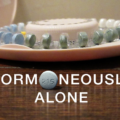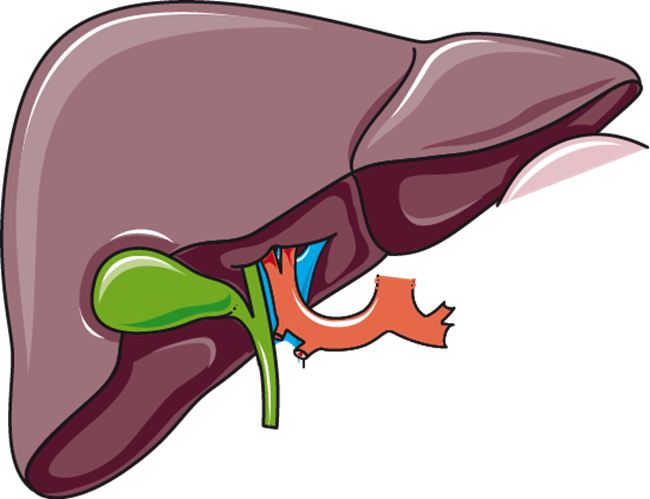It is interesting and devastating to look at the story arc of hormonal birth control’s acceptance in the medical community. At the time of the Nelson Pill Hearings in 1970, many top physicians were upset because they felt The Pill had been forced upon them by the drug industry. They were alarmed by significant side effects they were seeing in their young patients.
Today, the numbers have dwindled. Very few doctors recognize a problem with hormonal birth control, or at least, very few speak out about it. However, the evidence is clear that the problems persist. In fact, many of the concerns raised at the Nelson Pill Hearings have proven prophetic. So, where is the outrage from the medical community?
In his revolutionary classic, Common Sense, Thomas Paine wrote,
“A long habit of not thinking a thing wrong, gives it a superficial appearance of being right… Time makes more converts than reason.”
Time has certainly made converts. It’s ironic that a booklet titled, Common Sense would so aptly describe the medical industry’s current attitude toward birth control.
Is Birth Control Safe?
Each package of hormonal birth control already comes with a large patient information pamphlet filled with infinitesimally small print that is intended to warn patients of all the dangers. But even this tiny tome is insufficient.
I recently wrote about a citizen’s petition that has been submitted to the FDA requesting that new black box warnings be included on the labeling of these potent drugs. That petition is currently posted on a government website, and your comments are requested.
There are literally hundreds of thousands of stories to be told about the negative consequences of taking hormonal birth control. If one of those stories is yours, please share it! Here’s the link to the petition:
FDA Birth Control Safety Petition
So far, comments have come in from women who have experienced consequences (some minor and some deeply disturbing), from mothers and fathers who have lost their daughters, and from medical professionals who have seen the startling side effects in their work.
Your Voice
The Regulations.gov website boasts the tagline: Your voice in Federal Decision-Making. Please take advantage, and make your voice heard if you’ve experienced any kind of negative side effect related to these drugs. You can do it anonymously, if you choose.
Be warned – this is a government site and is unpredictable. Sometimes it loads like any other website, but other times it can feel like it will never load. Please be patient, and share your story.
Here are some excerpts (in no particular order) from people who have already commented. I chose these examples to demonstrate the diversity of people contributing, symptoms caused, and birth control products implicated:
I began using the Nuva-ring after my first child. It took me months to recognize that the almost daily migraine headaches I began experiencing were from the ring. I took out my last ring, and they never came back. – Amy
I have bipolar disorder. At the time I started using birth control, it was undiagnosed. My bipolar episodes increased dramatically after beginning birth control, with depressive episodes during the 3 weeks I took the pill and manic episodes during the off week. When I started Mirena, my bipolar disorder shifted to rapid cycle bipolar. Additionally, I have had issues with excessive bleeding (heavy and long)…In all instances, the doctors told me to just keep talking it and it would get better, which it never did. – Anonymous
I took the pill for 8 years. It got me very sick. I got Interstitial Cystitis and low libido. My mood was not predictable. I suffered a lot in those years. I don’t want that for any other woman. – Julieth
While on birth control, I suffered from vaginal dryness and an inability to orgasm. Both went away very quickly after I stopped taking birth control. – Anonymous
I am an emergency department nurse. I am continually surprised at how many women I see who have a wide variety of physical problems related to various types of artificial birth control. I have witnessed hormonal birth control causing depression, mood swings, deadly blood clots, and at time hemorrhaging…- Christopher
I used a few types of birth control pills over a period of several years and suffered from depression during the duration. I was never informed of the link between hormonal contraceptives and depression, so I didn’t make the connection until later, when I discontinued their use. – Brook
My experience with hormonal – estrogen based birth control was partial loss of vision (started while i was driving!) and severe migraines that kept me in bed for a long period of time… – Jessica
Why was I offered this drug as a young woman (early 20s) with little information on possible long-term effects or without any further diagnoses of my acne? My symptoms should have been treated without a dangerous synthetic drug. More doctors need to be doctors instead of drug pushers. FIX IT. Women deserve better. Label contraceptives for what they really are – cancer causing, infertility causing, deadly, PCOS-causing, thyroid disease-causing, ARTIFICIAL hormones. – Anonymous
I’m happy to share my daughter’s story. 2 years ago at age 15 she was started on OCPs for very irregular, heavy periods. At month 4 the pharmacy switched her generic brand for some reason. Within a month of the switch, she developed an extensive left leg DVT and a right pulmonary embolism. It turns out our family had factor V leiden and didn’t know it… – Gina
After using the pill for almost twenty years, off and on, I realized the side effects that it was having on my physical and emotional well being. I most certainly gained weight. I had low libido and had no idea why. I had issues arise with my cervix and had to have it scraped several times for pre cancerous cells. Then a small non-cancerous cyst on my breast. It wasn’t until I met with a breast specialist that she pin pointed most of these issues to having been on the pill for so long, given I have no family history of any the issues I was having. – Alicia
I took the birth control pill at a young age and had nothing but problems from it. It increases blood pressure, causes bloating, weight gain…Doctors hand this out like candy without explaining the risks. – Leisa
In 2011 I was prescribed hormonal birth control to “fix” a very irregular cycle. Three months later I started to struggle with crippling fatigue, loss of appetite and disinterest in everything except sleeping. It was shortly after that diagnosed with Major Depressive Disorder, and still to this day have to be on medication to remain functional… The only risk my primary care doctor at the time brought up was a slight risk of blood clots, which as a non-smoker she didn’t think was really anything for me to worry about.
Women deserve better. Women deserve to be fully informed of the risks, and deserve better health care that doesn’t begin and often end with hormonal birth control. – T.F.In my mid-30s, I went on Ortho Tri-Cyclen Lo for only 9 days. On day 9 I was curled up in a ball on my floor thinking I didn’t deserve to live. I did not take another pill and woke up the next day emotionally back to normal. But in those 9 days the pill destroyed my endocrine system. I suffered terrible physical symptoms that I never had before that day: shortness of breath, tinnitis, “hot foot”, heart palpitations, loss of libido, loss of vision, burning pain, joint pain, deadened emotions…
My niece developed MS not long after starting the pill and a connection between the two things seems probable. – HollyAs a family practice clinician for over twenty years I have seen within both my direct patient population and indirectly in my community harm specifically from a combined OCP. The most profound are the thromboembolic events…I can think of three patients under my direct care that presented to the ER with CVA symptoms, two of these patients continue with deficits today, the third was more lucky having no current deficits…- Julie
On 2 different types of birth control pills, Skyla, and Mirena, I experienced the following symptoms: total loss of libido, anxiety, depression, cystic acne, brain fog, memory loss, extreme fatigue, and recurrent yeast infections. All of the symptoms resolved when I finally quit hormonal contraceptives altogether. – Anonymous
I have experienced first hand the horrible side effects of hormonal birth control that almost 10 years later I am still trying to reverse. I was young and didn’t know better. I was put on it by a dermatologist who said it could clear up my skin. Please stop marketing the pill as a cure all. It is a cheap band aid that leaves more problems when removed. – Samantha
When I was in my mid 20’s, I was prescribed the hormonal birth control pill, Ovcon, to assist in controlling periodic break-through bleeding. I experienced weight gain, debilitating migraine headaches, depression and such an overall malaise that I vowed when I was finished with this “treatment” that I would NEVER put hormonal contraception pills in my system EVER again. Hormonal contraceptive pills are a true danger to women. – Kathleen
I was never told the risks of being on hormonal birth control and when I had severe depression and anxiety on this medication, was told by health professionals that I must have lied about not having a history of mental illness. Access to contraceptives is vital, and so is knowledge about the risks to the body and mind. – Briana
I would like to add my name to the petition. As a general surgeon, me and my partners ask our breast cancer patients about OCP use since our best cancer textbooks describe an increased risk of breast cancer with OCP use. It is ethically imperative that women are made aware of the risks of ingesting hormones into their bodies. – Anthony
I have been skeptical of the pill for a long time. I was put on a low dose pill very early in my marriage. When we moved overseas due to my husband’s army assignment, I was switched to another low dose pill. Unfortunately, I developed Stage 3 cervical dysplasia and my physician was concerned about pre cancerous changes. When I stopped the pill, the dysplasia went away. The physician at the time told me that they believed the pill could cause these changes in the cervix. I learned a natural method of fertility awareness eventually and used it for 20 years for family planning. I would never recommend the pill to any woman. – Susan
I suffered horrible side effects as a result of birth control pills for years. I first started taking the pill at age 18, and immediately lost my libido, experienced sexual malfunction, severe migraines and depression. When I discussed these symptoms with my doctors, I was told that I wasn’t drinking enough water, I was simply underweight or that there was something wrong with me- not the medication… – Rachael
We lost our 23 year old daughter Alexandra to MPE caused by Lutera. She was on it for six months and dropped dead with no warning…- David
While I was on varying forms of birth control pills, I suffered crazy mood swings and severe depression issues. then I was given an IUD – the Mirena – during which i had severe mood problems, severe depression and severe anxiety including anxiety and panic attacks. – Erickajen
I had severe depression with suicidal thoughts. I had no libido and I got severe fatigue. I took on weight and was not able to lose it. And I got a Candida infection of the intestine.
After stopping with the birth control pill these symptoms vanished. But the Candida infection of the intestine remained. – UrsulaWhen I was taking Hormonal Birth Control (HBC) I underwent a massive weigh gain. From 120 lbs to 155lbs. That’s almost adding 30% to my body weight! I also suffered with severe stomach cramping, constant discomfort, constipation and diarrhea. My doctor diagnosed it at IBS. I was only on HBC for 8 months, and got pregnant while taking it. I stopped taking it upon pregnancy and have never touched the stuff again! – Anonymous
On July 2nd, 2015 I received a phone call no parent ever wants to receive. My 19 year old daughter Shelby had died. Shelby was very athletic, did not smoke and had no history of a blood disorder. The coroner’s report confirmed that Shelby had died from a pulmonary embolism. She had a DVT behind her left knee that traveled to her lungs causing her bilateral embolism. The coroner also confirmed that her DVT was caused by her birth control the NuvaRing. – Carol
I experienced major mood swings and depression while taking the pill (Orthotricyclin?). I stopped taking it and noticed less depression and no longer had mood swings. – Melissa
I was put on the Apri birth control pill by my PCP as a teenager due to having “short” menstrual cycles with “long” durations of bleeding (without any need for pregnancy prevention). When I felt sick for a week after beginning the medication, I returned to my PCP, and she reassured me to keep taking it and the symptoms would subside. While the gastrointestinal symptoms subsided, depression symptoms started to gain ground. After two months of persistent depressive symptoms without any triggering events in my life (everything truly was great), I went back to my PCP and told her about my new, severe depression symptoms. She prescribed Zoloft for me and I started to feel better. I steadily increased my dose under the supervision of a psychiatrist until I was able to function again. I stopped crying for no reason, but didn’t feel like my normal self. This continued for about a little less than a year until my mother looked into the side effects of birth control pills. She informed me that depression could be a side effect. I immediately discontinued the birth control pill…I was able to reduce my use of antidepressants and I felt like myself again.
Unfortunately, while the physiological depression trigger had been removed, the negative thought patterns that developed during this prolonged depressive episode had been given sufficient time to ingrain themselves into my thought processes. Though I have been to counselors and worked hard to incorporate cognitive behavioral therapy techniques into my daily routine, I still, 10 years later, daily struggle with the thought patterns that were developed during my time on Apri. I still am required to take a low dose of Zoloft. – Anonymous
Put the Informed in Informed Consent
Thanks to the silence of their doctors and the inadequacies of current warning labels, too many young women are unaware of the many risks they are exposing themselves to by taking birth control. These excerpts represent just a few of the voices of victims of The Pill who want to stop this madness.
Add your voice. Let’s make this a chorus so loud it will be impossible for them to dismiss.
FDA Birth Control Safety Petition
Share Your Story Here on Hormones Matter
So that these stories reach beyond the FDA site, consider sharing your story on Hormones Matter too. We will publish your story and share it broadly on social media. Here are some of the many articles and stories that we have already published. If you are interested in sharing your story, leave a comment below and we will contact you.
We Need Your Help
More people than ever are reading Hormones Matter, a testament to the need for independent voices in health and medicine. We are not funded and accept limited advertising. Unlike many health sites, we don’t force you to purchase a subscription. We believe health information should be open to all. If you read Hormones Matter, like it, please help support it. Contribute now.
Yes, I would like to support Hormones Matter.
Learn More about the History of Birth Control

The FDA approved The Pill despite it not being proven safe. Today, it has been linked to everything from blood clots and cancer to lupus and Crohn’s disease — and still has not been proven safe.
This book explores the medical and historical disconnects that brought us to this point.
Last updated on October 21, 2023 at 9:38 pm – Image source: Amazon Affiliate Program. All statements without guarantee.
This article was published originally on July 11, 2019.
Photo by Edu Lauton on Unsplash.































